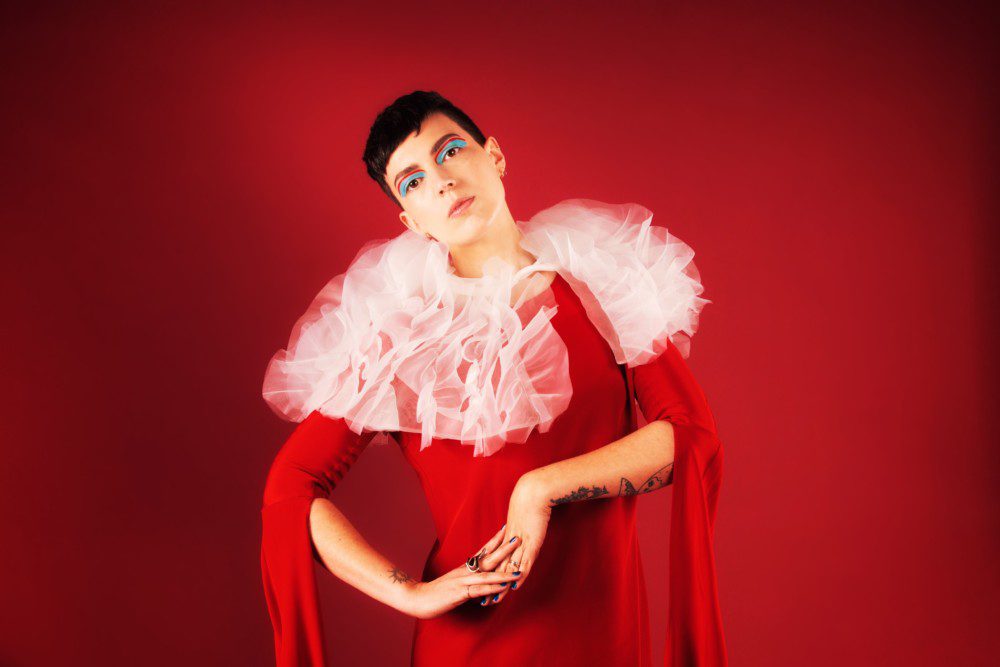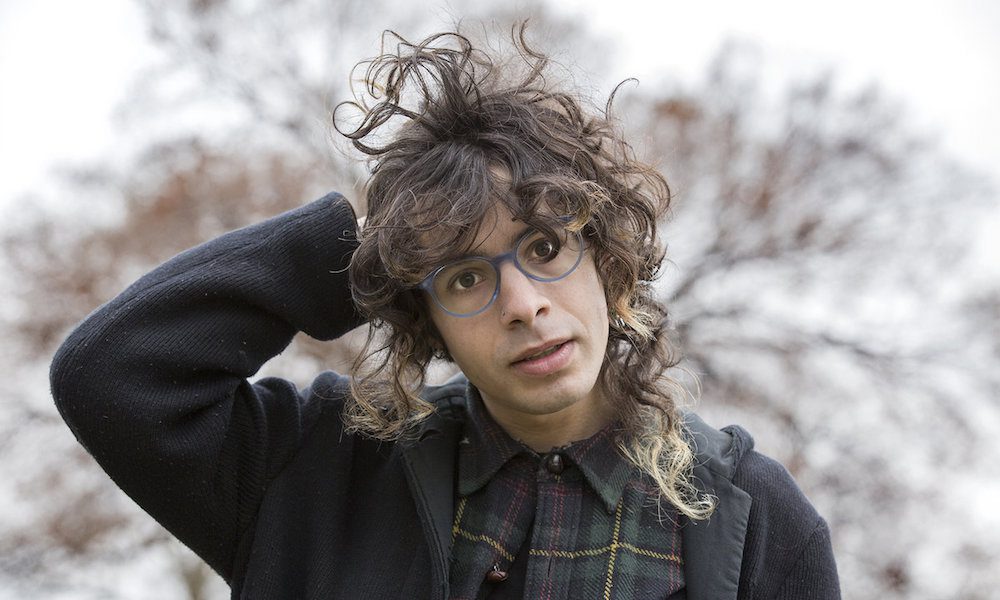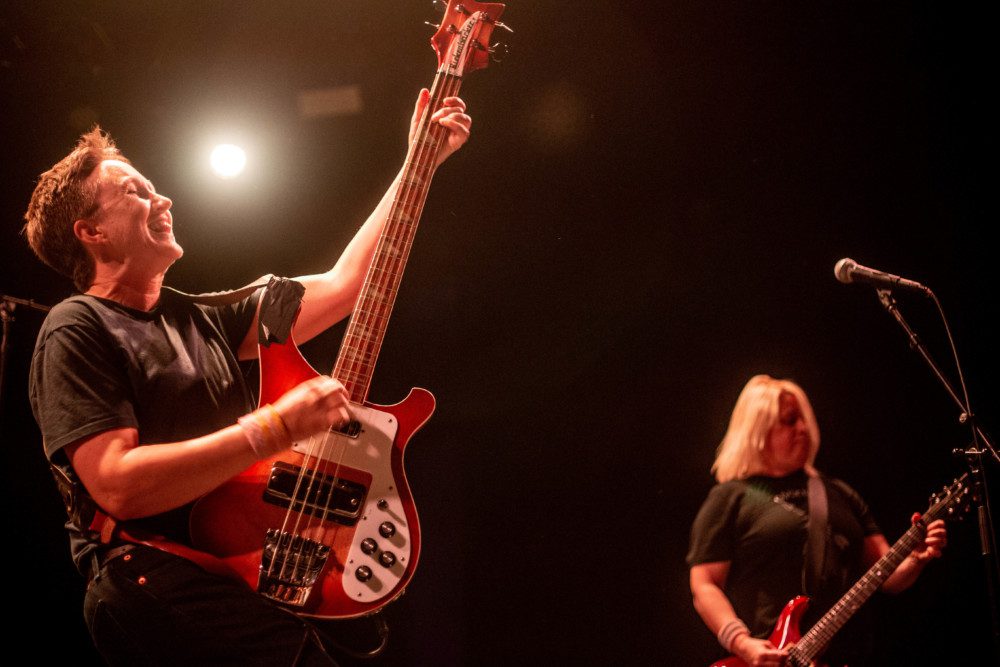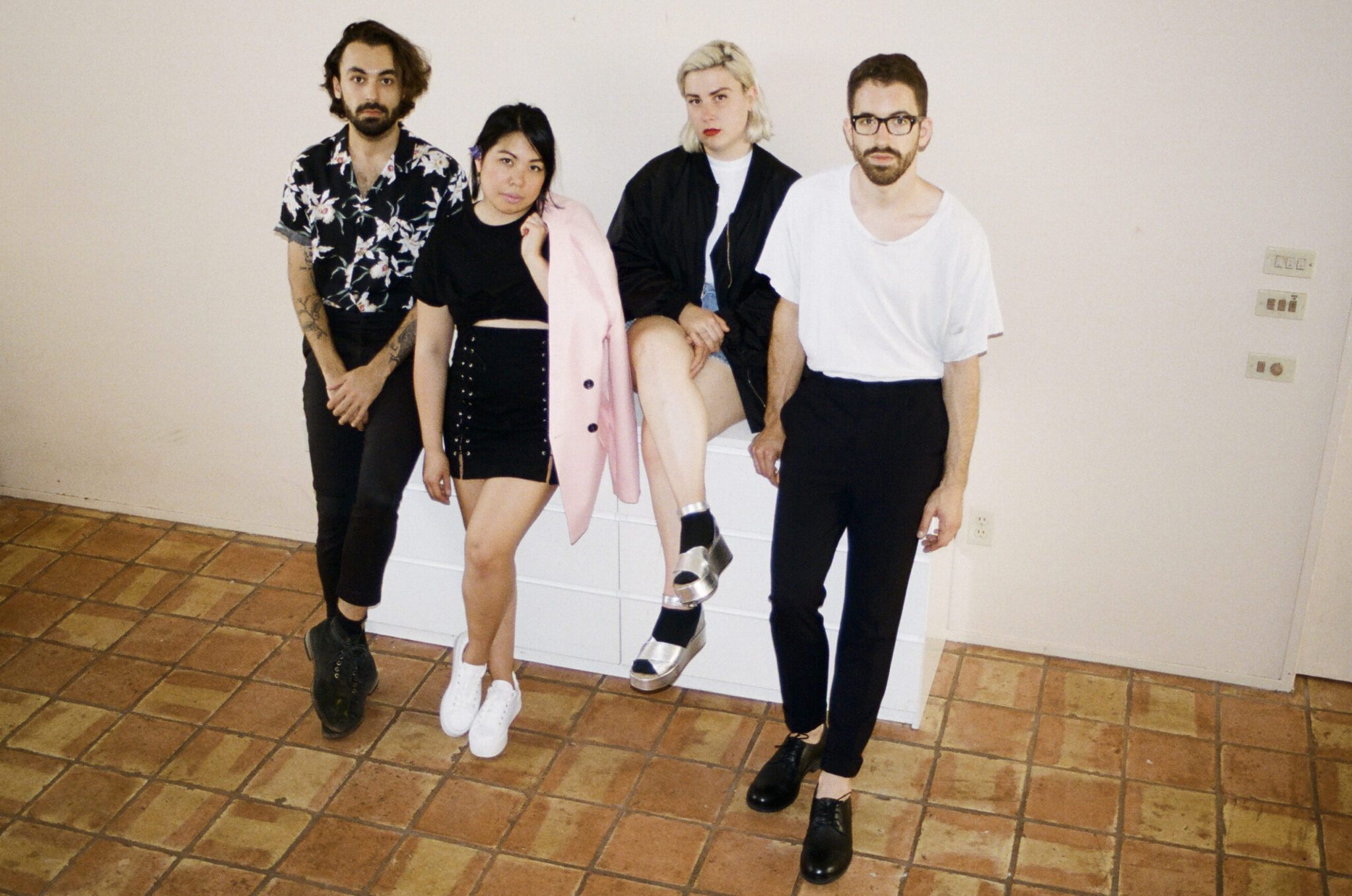
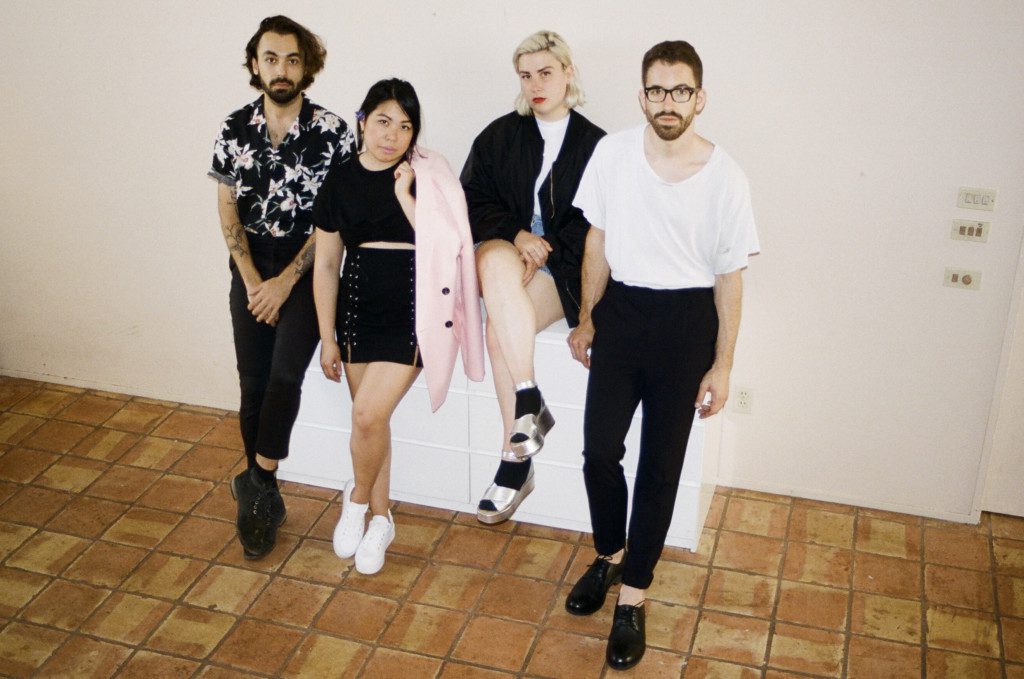
When Andrea Lo talks about Belle Game, the concept of serendipity keeps coming up. It was serendipity that she met her bandmates Adam Nanji (guitar) and Alex Andrew (drums) when they were all in grade school. Adam went off to McGill, where he met future keyboardist Katrina Jones in a bagel shop; now the two are engaged. It was serendipity when the newly minted band, after releasing their 2013 debut Ritual Tradition Habit, scored a residency at the Banff Center in Alberta with then artist-in-residence Kevin Drew of Broken Social Scene, a fellow Canadian band that had a huge influence on Belle Game’s early sound. It was serendipity that their longtime manager started working with Arts & Crafts, one of Canada’s most influential independent record labels, linking them once again with Drew and also with Dave Hamelin of the Stills, who would produce their long-awaited follow-up. And now, four years later, through all that serendipity and a lot of hard work, too, Fear/Nothing has finally arrived, an album that transformed Belle Game’s straightforward indie sound into heavy-hitting dream pop, almost relentless in its interrogation of the human soul.
At the center of that sound is Lo’s uncommonly powerful voice – one that, in a pop realm, would give Adele a run for her money. While lots of synth-heavy dream pop buries vocals into a swirl of reverb and guitar distortion, Lo’s dramatic, mantra-like lyrics sit right up front in the mix, demanding to be heard and daring listeners to really feel something. Lo says that singing has taught her to really reclaim space for herself. “Many of us grow up in situations where we feel we have to be palatable,” she says. “I think music, for me, has always had a vein of challenging myself to see what goes beyond my current perspective of what I know, what I understand, of myself and of the world.” And it’s working well for her and the rest of Belle Game – in addition to the release of Fear/Nothing, the band is opening for Broken Social Scene’s latest North American tour. Audiofemme caught up with Lo while the band prepped for a sold-out date in Washington DC, and in a candid discussion, the singer discussed her personal philosophies, dished on working with Drew, and described those serendipitous moments in detail as vivid as the lyrics she wrote for Fear/Nothing.
Audiofemme: All in all it took four full years for you to follow up your debut – why was that? And what caused you to shift your sound from more straightforward indie rock to a dream pop, or as you refer to it, “crush pop” aesthetic?
Andrea Lo: When we wrote [fusion_builder_container hundred_percent=”yes” overflow=”visible”][fusion_builder_row][fusion_builder_column type=”1_1″ background_position=”left top” background_color=”” border_size=”” border_color=”” border_style=”solid” spacing=”yes” background_image=”” background_repeat=”no-repeat” padding=”” margin_top=”0px” margin_bottom=”0px” class=”” id=”” animation_type=”” animation_speed=”0.3″ animation_direction=”left” hide_on_mobile=”no” center_content=”no” min_height=”none”][Ritual Tradition Habit] and toured behind it we had the utmost intention of writing and recording the next album right away and releasing it, and in that whole process, we had maybe three or four release dates [for Fear/Nothing] that never occurred, whether the songs weren’t quite right or the market wasn’t quite right or something was a little bit off. And it was serendipitous – despite our impatience in wanting to release the album, I really don’t think it would’ve been anything close to what it is now unless we took those four years. Not to get all existential, but I think it was so necessary because it was a process where we were – I wouldn’t even say discovering – it was like a process of shedding, you know? We had released Ritual Tradition Habit under different ideals and different understandings of what music was and how to create it and how we engaged with it. And in going through the transformations that occurred, both personally or as a group, we were able to create something that was a lot more honest. And I say transformation not only in the terms of tangible situations, but also internally, a lot of things were shifting. We were growing up, as I’m sure many people can relate to. You look back and realize you had no fucking clue what you were doing, even when you thought you had it all figured out. It was a lot of growing up, a lot of stripping away our ideals of who we were, what meant a lot to us, what type of music we wanted to create. We went from wanting to make a certain type of music, to being like, fuck it, let’s just make the space and just create.
“Spirit” was the first song that we wrote for this album and I think it’s a huge explanation of the process that would occur over the next few years as we would continue to write. But essentially what it was, when we wrote that song, it was the dropping of all guards and just moving from a very logic based approach to something that was more of a feeling. And I’m not even talking about an emotion, although emotion does come in, but it wasn’t like, I feel sad so I’m gonna write a sad song. Just physiologically moving through the process, allowing the body to express itself in the way that it wanted to in that moment while we were creating. So a lot of the songs started out with just jamming, messing around with sounds, and we would just all come into this pocket and go, wow, that felt really special, and from there we could do the more technical work of how long should the bridge be, where should we place the choruses, and what not.
AF: Well that time was especially formative too because you had this whole residency at Banff, met up with Kevin Drew, and wound up on Broken Social Scene’s record label Arts & Crafts. Can you talk a little bit about that and how it changed your destiny as a band?
AL: Absolutely. Again, super serendipitous. I don’t know if you’ve recognized this thing in life where sometimes you make a choice, or you make a decision, and it’s almost as if life presents you with all the support that you need to continue along the path, and you’re like, oh, hey, I guess I might be doing the right thing. So that’s kind of what our whole process felt like. We met Kevin at the Banff Center when we were doing a residency there back in fall 2013. We were all huge fans of Broken Social Scene and it had narrated so much of our teenage lives, so we were very grateful to be accepted into the program. And I think, what occurred there – I don’t know, apparently Banff has like, rivers of rose quartz running underneath it, so anyone who subscribes to that would just resonate with how much you feel your heart is being opened. But I think just the environment alone, it feels amazing. So we met him there and we had no fucking clue what to expect. All we knew was that we were meeting one of our greatest idols of all time, and everyone always says never meet your idols. But Kevin Drew, we loved meeting. He was there during the birth of “Spirit” actually. And I don’t know what resonance Kevin had; maybe he just walked around like some sort of spirit animal with a really vibrant aura or something, but he really was one of the huge catalysts in helping us move from logic to feeling. He would listen to our music and be so candid. Like, if he thought something was crap, he’d just be like, I hate this song. But it would be in the most laid-back, loving, matter-of-fact Kevin Drew sort of way. With music, you can’t have a step-by-step manual, and his approach was telling us to get out of our heads. He changed our conversation with music, just like that.
AF: And so now you get to do this whole tour with Broken Social Scene, which must feel really exciting.
AL: Yeah, it’s pretty crazy. We totally didn’t expect to meet Kevin Drew, and then to work with Kevin Drew, and then to be on Arts & Crafts, and then even when we were on Arts & Crafts we weren’t sure if we would get a tour with Broken Social Scene. They had broken up. Then they end up releasing Hug of Thunder almost a month to the day before we finally put out Fear/Nothing, after waiting so long to do it. You can’t argue with the timing, and it wasn’t planned at all. I think about it and I go, how interesting that it took us three years longer than expected, to go through all this, bitching and groaning the whole way through, like why can’t we release this album, to four years later, Broken Social Scene is back together with a new album and we’re going on tour with them!
AF: Speaking of Fear/Nothing, I want to discuss one theme of the record that keeps coming up: the idea of pushing past your comfort zone to reach something deeper. In the video for “Spirit” that’s reflected by the Well of Death rider, it’s also in the album title, it’s also apparent to the sonic evolution of the band. Could you talk a little bit about that process of pushing through to find some truer essence to your music?
AL: Music has been a personal evolution for me and the avenue that my evolution is expressed through. When we first started Belle Game, I would sing with my back to the audience, and I wouldn’t want to go on stage. I’d get violent stage fright. I worked a cushy corporate job before that, and I thought I was gonna climb the corporate ladder. It was really hard to leave that and devote myself to Belle Game fully. But even though I was so afraid of it, there was just something in my gut saying you have to do this if you want to engage in living life. And without even knowing what that would look like or if I’d end up in the poor house, I just said yes to it. I quit my job; they were gonna promote me to like, regional sales manager at this gaming corporation, but I was like, nope, I’m gonna focus on music, I’m not gonna take the promotion. I’ve always had this strong will, this ability to push through calamity. Maybe it’s stubbornness. Just growing up and really facing yourself is challenging. It’s interesting to look back on the four years it took to make Fear/Nothing because it like we’ve been writing it as so many different people along the way, with different understandings of the world, the ways we engage with it, different levels of openness and being guarded. It’s like a picture album, one where we’re acknowledging the grey areas in life, and living amongst fear and living amongst nothingness, and having those two coexist, and the different definitions in those words. Nothingness came as inspiration in so many ways – it came from deep states of depression and having a nihilist view of everything; nothingness in an elevated state in which I felt ecstasy and felt lifted up and without chains; feeling spaces, wanting to dive into a big black void of no sadness, no happiness, no anger, just neutrality and space around you, and the beauty of that nothingness. I think that we sometimes are afraid, when we fear the future or fear outcomes of anything, of not knowing what’s gonna happen. We forget that there’s so much freedom in nothingness, because nothingness provides for infinite possibility.
AF: That duality also works sonically; this album has a darker sound and lyrics than your last but overall there’s a greater sense of triumph. Do you intentionally seek out that dichotomy?
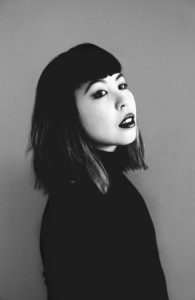
AL: One of the most challenging things in life is acknowledging its ugly parts, particularly of ourselves – those parts that we find shameful or are disgusted with. Letting it come into some sort of expression that doesn’t hurt anyone, that’s almost what singing has come to feel like. I’ve faced some challenging and tough things in my life, as we all do in our own way, but I find that singing is now almost a way to feel stripped down and bare and vulnerable and transparent and honest as possible. It’s like a personal exorcism. I always noticed these patterns in my life of going to extremes, so much that I even thought I had borderline personality disorder. But we need that, as humans. We don’t really allow it or accept it but we can learn from the pendulum swinging to the left, to one extreme, and then the pendulum swings right, and we need to learn from that extreme too. And it’s only when we allow it to swing freely and to express itself fully in the way it needs to that it begins to die down and slow down and find the middle. Which I believe incorporates both extremes but in a really healthy, good, balanced expression. If we all learn to live an observed life we can still have our emotions and all of that, but we’re an observer of it. We’re able to speak with it, to recognize it and not be completely swallowed up by it. But no one does it perfectly all the time.
AF: I’m interested in the power dynamics you explore on the record, particularly as they relate to feminine sexuality. Probably the most obvious example of you exploring that dynamic is “Bring Me,” and if you’re comfortable talking about it, I’d love to know what you had in mind when writing that song, and what you’re trying to get across.
AL: That’s the one song where I was thinking, is this too much?
AF: I love that it’s almost too much! It’s really startling and that’s where it gets so much of its power.
AL: That song, ultimately, and all the songs, I’ve heard people interpret in so many different ways, and I think that’s such an important part of music – that my words, no matter what they meant to me, will resonate with people in whatever way they need it to. “Bring Me” started as a mellower song, until we worked with Dave [Hamelin], who asked us to really push it. And I think it was really one of the best things we could’ve done to listen to him and to do that. “Bring Me” is a lot more expansive than some people view it. There may be nuances or nods to a particular relationship, but the relationship wasn’t with a person, it was just with life. I had a lot of trouble singing that song; those notes were really big and I had to push myself to really do them, but it was a reclaiming of space and allowing myself to have those angry expressions. Again, I think I had two dualities – you can see one on “High,” where I’m in a phase of spiritual bypass – but with “Bring Me,” with “Low,” I’m really allowing myself to feel that anger and that perverted taunting of life to “see what I can do.” Bring me all of these things! In that song I allow myself to be accusatory and let myself talk about shit that happened to me and let myself express it in regards to having been affected. It’s so charged because that’s one of the first times I allowed myself to delve into anger, and through that anger, reach empowerment. Life will just find a way to challenge you in many different manifestations, and we go through things we never completely rid ourselves of, we just learn to change our conversation about it and learn to work with it, and it can be even more amazing than if we got rid of it. So “Bring Me” was essentially allowing myself to have anger, to accuse, and to admit to myself that I’ve been affected by things and dare life to throw it at me again, because I’ve gotten to a point where I’m working smarter and feel more in charge.
AF: What is it like to channel that anger and emotion every night on stage? Whether it’s “High” or “Low” or “Bring Me” – really the whole album has an emotional rawness and realness. How do you channel that night after night in an authentic way?
AL: I think, going back to Ritual Tradition Habit, I remember my bandmates pushing me to write more honestly, but I think I felt too raw. When you’ve just achieved some sort of balance, you don’t want to go back there because you feel like you’ll fall off the deep end. But the past four years of writing this album, especially the last two and half years, was an ability to create a much stronger foundation within myself. So now I can visit the pendulum, the extremes, to dip into all of those things and still remain centered and grounded and not be swept away by revisiting it. Even something simple, like taking away my mic stand so I force myself to move around more – that helps me be more honest and vulnerable. The social norm is to keep it contained, but the less fear I feed into that, when I allow for that space around me, the easier it becomes. I actually sleep easier after performing! Such a huge lesson of life is stripping away at ourselves and allowing ourselves more true expression. It’s really healthy for us.
AF: I love that the album places such value on the strength in vulnerability. I love that the repetition of certain lines almost acts like a mantra – even something like “Oh I” which is literally the entirety of the lyrics – the more you hear it, the more the meaning of those syllables morphs. It’s a thought that trails off or it’s something you can’t say, or it’s a sigh. Do you use mantras like that in your personal life or your life as a musician? What do you find yourself repeating that keeps you going?
AL: They’re always changing. There’s so much power in subtle repetition. The best way I can describe how it speaks to me is that whatever I’m facing, it’s like being unable to escape an idea. Instead you have to absorb it and integrate it, and learn how to live with it. If I moved on or forced another line to happen next, it wouldn’t be natural to me. It’s moving on too quick. I haven’t let it sink in yet or learned my lesson. I need to keep repeating it until it’s done. Right now we do a small jam after “Spirit,” and I often sing “feel me now/get better now/I love you now/forever now” just over and over and over again. Just imagine if you were sitting with someone, making eye contact, and you held their hands and just had them repeat that to you over and over again. Fuck. I would be a mess.
AF: Same! And I think the experience of seeing a band play music, though it’s a more communal experience, can have the same effect. Which ties into my last question – what are your hopes for this record and what’s in the future for the band?
AL: Oh man. Big, high hopes. Since we’re in this vein, we really wanna create moments on this tour where we can offer the experience of opening up with and for as many people as possible, because we do that too when we’re up there. That’s a huge goal, to create this ongoing catharsis.
Belle Game opens for Broken Social Scene at Brooklyn Steel on October 4th. For more tour dates, click here.[/fusion_builder_column][/fusion_builder_row][/fusion_builder_container]

